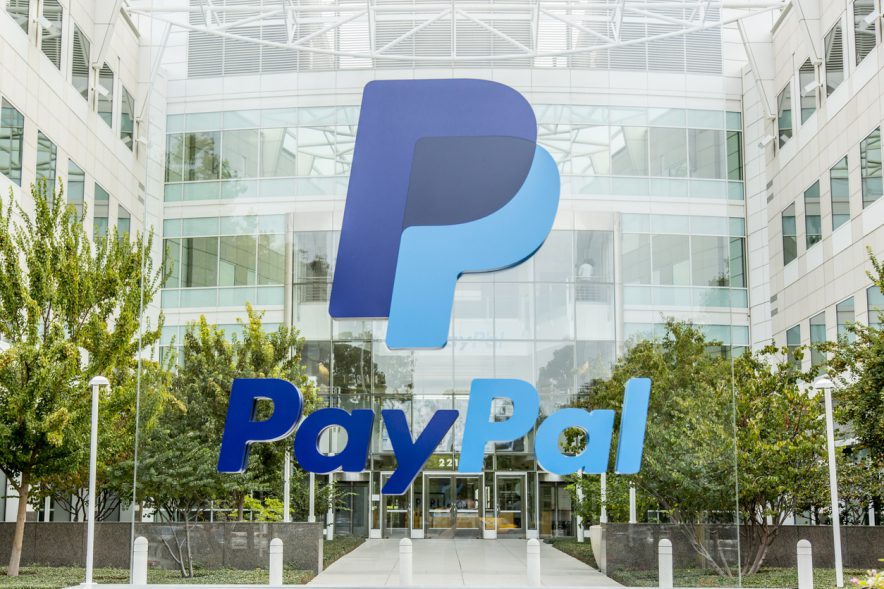
PayPal Users Targeted In Sophisticated New Phishing Scam
With news of hacking all over the media, PayPal has been a recent target. PayPal is a popular Internet service that lets its customers make and receive payments and pay for purchases online. Many customers were reached in a phishing email scam that was intended to rob people of their personal information, and in some cases, their Social Security numbers. Scamming PayPal customers for their personal data is particularly alarming since many people use PayPal as a kind of bank, and receive their monthly wages through this payment medium.
Emails That Steal Information
Email phishing is not unlike similar scams. It was characterized by a high level of sophistication and the ability to convincingly imitate genuine emails from PayPal itself. There were similar fake emails sent to holders of Gmail accounts in an attempt to get personal information, but in many cases, these emails had telltale signs that they were fake. The PayPal phishing scam in recent months begins with an authentic looking email purportedly from PayPal. The subject line of the fake email is that the account holder’s PayPal account is going to be closed unless they provide certain information. The subject line is meant to create a feeling of panic and urgency in the recipients so they will do anything required to keep their PayPal account open. This plays on the desperation of the many thousands of users who rely on the service for payments and shopping.
Sophisticated Phishing Tactics
Senior researchers at Internet security companies have pointed out that the PayPal phishing hack is particularly polished with the language and images used by the company. It is understandable that a large number of people were duped by the emails and handed over information that could lead to identity theft. The link in the email sends people to a phony website where personal information is requested including a Social Security number. There is a huge demand on the black market for all kinds of information from account details to emails and Social Security numbers.
What to Look Out For
There are a number of things you can do to protect yourself from phishing and other types of hacking. You should update security settings periodically and change your password now and again. If you see an email from a service, do not immediately click on any link until you’ve taken certain steps first. Being aware of these phishing scandals is an important step for keeping your account information protected. It is a good general rule to never give any information without double checking by going directly to the site and contacting customer service rather than through the email, which could be a trick.
When you receive a service email from, look carefully at what follows the strudel symbol or the “@” sign. If anything besides the actual site domain appears after the “@” sign, that could be a sign that the email is fake. Even though the latest phishing attack contained emails that were similar in wording and imagery to actual service emails, there were still a number of irregularities in the text including typographical errors and awkward phrasing.
If people click on the link that the hackers give them, it may not be too late as long as they do not hand over private information.
You should keep in mind that these services function as businesses and usually do not go out of their way to close down customer accounts unless there is been a serious problem. As long as your account has been healthy, you should be suspicious of any warnings that it is going to be abruptly closed down. Contact a customer service representative if you receive a message like this instead of responding directly or following links.
High Profile Identity Theft Scams
Of course, PayPal is not the only target of scams by sophisticated hackers and phishers in an effort to retrieve valuable information. Many Gmail users have received phony messages that their accounts would be terminated in a certain amount of time if they did not give over personal information such as passwords. Big box retailers have also experienced major problems with hackers, and 70 million customers had their names, addresses and phone numbers and credit card numbers stolen from retailers in the last few years. Some hackers are trying to make money directly from the information they get, such as using the credit card, whereas others sell contact information such as emails to others. In the worst-case scenario, hackers try to engage in full-scale identity theft which can give someone the opportunity to make transactions as if they were someone else. Cyber security is a major concern for governments and private companies as private information becomes a major commodity.
Payment Alternatives
The increase in hacking and phishing through sites such as PayPal has led some business owners and consumers to choose other forms of payment that they feel are more secure. To prevent credit cards from being the target of fraud, many people are using an EMP chip card instead of traditional magnetic stripe credit card for heightened security and to prevent the use of counterfeit cards. Another method is e-checks which enable you to debit or credit a checking account. E-checks can be cost efficient with lower rates than other forms of payment processing. Automatic payments allow you to send specified amounts to recipients and receive payments from them at certain dates. This is an excellent feature for memberships and subscriptions.
Be on the Alert
The increasing efficiency and convenience of digital payments have made it easier to do business and shop online. Along with technological developments, however, are new threats to security. There is a large illegal market for your information or ways to gain access to your accounts. Make sure your computer and mobile devices are protected with sophisticated, PCI compliant software to catch unauthorized access and to prevent it before it happens. Avoid giving any information in response to an email even if it looks professional and legitimate, but contact the site directly. Consider alternatives and secure ways of making and receiving payments for protection and peace of mind.
Ready to get started?
Get in touch or create an account





